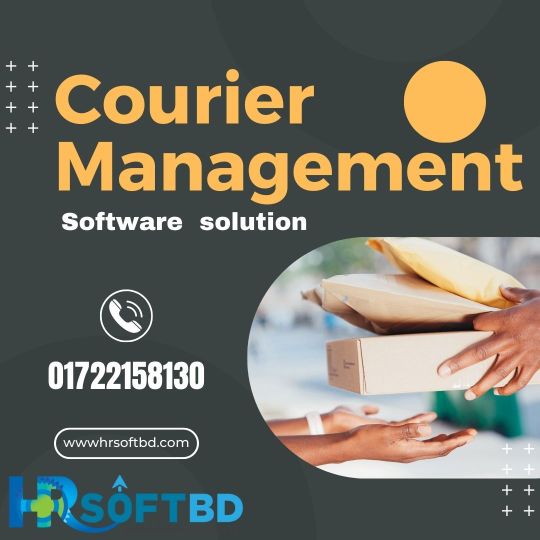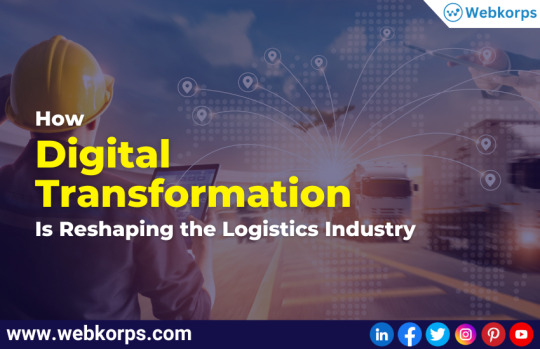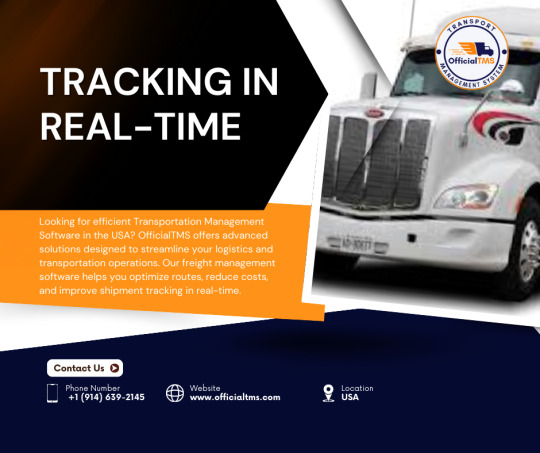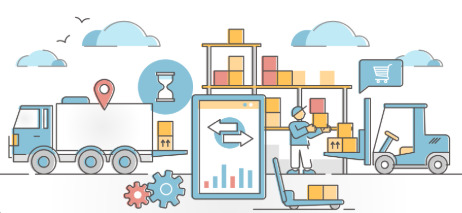#logisticssoftware |
Explore tagged Tumblr posts
Text

📦 Robust Tracking
🚚 Real-time Shipment Tracking: Fresa Gold allows users to monitor shipments live, providing up-to-date location and movement details.
📍 Status Updates: Users can view the current status of their shipments throughout the transit process.
⏰ Milestone and Delay Notifications: The system sends alerts about key milestones or any unexpected delays to keep users informed.
🚀 Schedule your demo today! 👉 https://calendly.com/fresatechnologies
For more queries please visit below link 👇 https://www.fresatechnologies.com/products/fresa-gold
For further inquiries, please contact us : [email protected]
#FresaTechnologies |#FreightSolutions |#FreightForwarding |#LogisticsSoftware |#SupplyChainTech |#FresaGoldERP |#ERPforLogistics |#G2Awards |#SoftwareRecognition |#BestERPSoftware |#AwardWinning |#IndustryLeader |#LogisticsTech |#SupplyChainSolutions |#SoftwareDevelopment |#FreightTech |#ShippingInnovation |#DigitalLogistics |#SupplyChainManagement |#LogisticsTracking |#ShipmentUpdates |#RealTimeTracking |#SupplyChainVisibility
0 notes
Text

Courier Management Software Solutions by @hrsoftbd
https://hrsoftbd.com/service-details/courier-management-software-solutions
The system offers features such as online and offline courier requests, payment, sales reports, product/package creation, doorway delivery, tracking, and customer feedback.
#CourierManagement#LogisticsSoftware#DeliverySolutions#ShippingSoftware#ParcelTracking#CourierSoftware#FleetManagement#LogisticsTech#DeliveryAutomation#SmartShipping#SmartS#hrsoftbd#softwaredevelopment#softwarecompany#mobileapp#websiteDevelopmentBD#websiteDesignBD#appDevelopmentBD#omrSoftwareBD#OMRSolutionbd#AccountingSoftware#ecommerceDevelopment#ERPSolutionBD#Ballotcountingsoftware#ballotsoftware#bulksms#voicecallhipping"
0 notes
Text
Distribution Management Software

mSELL Distribution Management Software offers a smart, real-time solution to streamline and automate your entire distribution network. From order booking and inventory tracking to distributor performance monitoring, mSELL ensures efficient supply chain operations, better stock visibility, and improved coordination between manufacturers, distributors, and retailers — all in one powerful platform.
0 notes
Text
🚛The Logistics Industry Is Going Digital - Are You Ready?

From real-time #fleet tracking to AI-powered #warehousing, digital transformation is no longer optional for #logistics businesses - it’s the new standard.
In our latest blog, we explore how logistics companies are using cutting-edge tech like IoT, cloud platforms, mobile apps, and predictive analytics to streamline operations, reduce costs, and meet rising customer expectations.
✅Explore the benefits ✅Understand the challenges ✅Learn how to get started (with real-world use cases)
📦Whether you’re in #freight, #warehousing, or last-mile delivery, now’s the time to digitize and scale smarter.
👉Read the full blog: https://www.webkorps.com/blog/how-digital-transformation-is-reshaping-the-logistics-industry/
#LogisticsTech#DigitalTransformation#SupplyChainInnovation#IoTinLogistics#AIinLogistics#Webkorps#FleetManagement#SmartLogistics#MobileAppsForLogistics#FutureOfLogistics#CloudSolutions#LogisticsSoftware#LastMileDelivery#LogisticsIndustry#BuildWithWebkorps
0 notes
Text

📦 Simplify your logistics with Omex CSMS! From inward entry to final delivery, streamline every step with precision ✅ 🔍 Barcode tracking 🔁 Cross-docking 🚚 Efficient inventory movement 📦 Hassle-free storage & delivery
Say goodbye to manual errors and delays—let technology handle the flow! 🙌
🌐 Visit: www.omexcsms.com 📩 [email protected] | 📞 +91 70480 00044
#omexcsms#logisticsmanagement#coldstoragesolutions#inventorytracking#barcodeautomation#crossdocking#supplychaintech#warehouseefficiency#logisticssoftware#smartlogistics
1 note
·
View note
Text
📦 MyBility – Smart Bilty Creation & Management Made Easy! 📦
Discover MyBility, a digital platform that simplifies bilty (consignment note) creation and management for transporters and logistics businesses.
🚛 Key Features:
Quick Bilty Creation with auto-fill and templates
Real-Time Tracking & Management
Cloud Storage for secure, paperless records
Printable & Shareable Bilties
Smart Search & Filters
Mobile-Friendly Access
Say goodbye to manual paperwork and manage your freight the smart way with MyBility.
🔔 Like, Subscribe, and Stay Updated!
#mybilty#biltymanagement#logisticssoftware#digitalbilty#trasnportapp#freightmanagement#consignmentnote#logistictech#transportsolutions#supplychaintools
1 note
·
View note
Text

Courier Management Software Solutions by @hrsoftbd
https://hrsoftbd.com/service.../ballot-counting-software
Key Features: Request for courier from online and offline both, Payment & Sales reports, Product/Packages create and manage, Doorway delivery & Pickup, Easy method of payment, Filter selection for every order by package size, location, and Time, Product delivery vehicle management, Product tracking and barcode system manage, Product delivery history show using google map or graphical design, Product delivered return or failed management, GPS tracking for special parcels, Vehicle product shifting report, Delivery status sent to customer’s phone using SMS, Customer feedback & On-Time delivery, Official Accounts Management, Easy user interface to operate all functions, 24/7 customer support
#CourierManagement#LogisticsSoftware#DeliverySolutions#ShippingSoftware#ParcelTracking#CourierSoftware#FleetManagement#LogisticsTech#DeliveryAutomation#SmartShipping#SmartS#hrsoftbd#softwaredevelopment#softwarecompany#mobileapp#websiteDevelopmentBD#websiteDesignBD#appDevelopmentBD#omrSoftwareBD#OMRSolutionbd#AccountingSoftware#ecommerceDevelopment#ERPSolutionBD#Ballotcountingsoftware#ballotsoftware#bulksms#voicecallhipping
0 notes
Text
Every failed delivery is a learning opportunity — if your software tracks it right. InstaDispatch handles it all: alerts, proof, rescheduling, and reports. 🚚 Smarter tools. Smoother operations.
#FailedDeliveries#CourierSoftware#DeliveryTracking#LogisticsSoftware#LastMileDelivery#DeliveryManagement#FleetSoftware#RescheduleDeliveries#ProofOfDelivery#InstaDispatch#DeliveryAutomation#SmartDispatching
0 notes
Text

Courier Management Software Solutions by @hrsoftbd
Inter-Branch Synchronization, Manage drivers more easily, Reduce wasted time, Manage peak periods, Completeness of service from door to door, Overall cost-effectiveness, Speed of service.
#CourierManagement#LogisticsSoftware#DeliverySolutions#ShippingSoftware#ParcelTracking#CourierSoftware#FleetManagement#LogisticsTech#DeliveryAutomation#SmartShipping#SmartS#hrsoftbd#softwaredevelopment#softwarecompany#mobileapp#websiteDevelopmentBD#websiteDesignBD#appDevelopmentBD#omrSoftwareBD#OMRSolutionbd#AccountingSoftware#ecommerceDevelopment#ERPSolutionBD#Ballotcountingsoftware#ballotsoftware#bulksms#voicecallhipping
0 notes
Text

🌍📦 Manage and Monitor Your Business Across Multiple Countries & Branches from One Software! 🚀 💻 Fully Integrated Web-Based ERP Software for Freight Forwarders ✨
🚀 Unlock actionable insights now! Schedule your demo today! https://calendly.com/fresatechnologies
For more queries please visit below link: 👇 www.fresatechnologies.com/products/fresa-gold/
For further inquiries, please contact us : [email protected]
#Fresa |#Freightsolutions |#Freightforwarding |#Import |#FresaGold |#ERPSoftware |#G2Awards |#Crozdesk |#SoftwareAdvice |#MostRecommended2024 |#GetApp |#UserReviews |#BestFunctionality |#Capterra |#UsersLoveUs |#fresagoldsoftware |#warehouse |#shipping |#logistics |#logisticssoftware |#all_in_one |#BestFreightsoftware |#freight |#Customize |#Manage |#Business |#Automate |#GlobalBusiness |#LogisticsSolutions |#FreightManagement |
0 notes
Text
Revolutionize Cross-Border Trade with SeaOne Cloud Logistic

SeaOne.io by Coneio is a cutting-edge cloud logistics software designed to simplify cross-border shipping and streamline global trade. From secure global payments to real-time tracking and compliance management, SeaOne ensures seamless logistics operations across devices. Access worldwide markets, reduce delays, and stay compliant with international regulations—all through one smart platform. Discover hassle-free logistics with SeaOne.io.
6th Floor, Manjeera Trinity Homes, Corporate, 605, K P H B Phase 3, Kukatpally, Hyderabad, Telangana 500072
9030689222
http://www.seaone.io
#CloudLogistics#SeaOne#Coneio#GlobalTrade#CrossBorderShipping#SupplyChainTech#LogisticsSoftware#SmartLogistics#RegulatoryCompliance#GlobalPayments#ShippingSolutions#FreightTech#TradeSimplified#B2BLogistics#SeaOnePlatform
0 notes
Text
#BestMovingSoftware#MovingCompanyTools#RelocationSoftware#MovingBusiness#LogisticsSoftware'#MovingManagement#MovingCompanyGrowth#ModernMovingSoftware#EfficiencyForMovers#CloudBasedMovingSoftware
0 notes
Text

OfficialTMS AI-powered platform empowers global businesses to optimize, automate, track and simplify end-to-end logistics and supply chain operations. 💻 Request a demo or fill out the form to see how we can help your business grow: https://forms.gle/nwKKcpJ61yTNvGQW6 For inquiries or assistance Visit us: https://officialtms.com
#FleetManagement#DriverSupport#TMS#BusinessEfficiency#LogisticsTechnology#SmartLogistics#TransportationManagement#LogisticsSoftware#DispatchManagement#RealTimeTracking#DriverCoordination#MobileApp#TripManagement#DocumentManagement#AutomatedPayroll#LogisticsSolutions
0 notes
Text
Warehouse Management Systems Market: Smart Warehousing, AI-Driven Analytics, Competitive Strategies
The global warehouse management system market size is anticipated to reach USD 13.34 billion by 2030, advancing at a CAGR of 19.5% from 2024 to 2030, according to a new report by Grand View Research, Inc. The growing transition towards cloud-based management systems in the warehouse industry is anticipated to boost the demand for warehouse management system (WMS) based on the Software-as-a-Service (SaaS) model.

Advancements in cloud-based technologies are estimated to fuel the adoption of WMS software, irrespective of the organization's size and complexity where these solutions are used. Surging demand for cloud-based systems can primarily be attributed to medium and small-sized businesses that do not require the implementation of advanced warehouse technologies and high-speed automation.
Warehouse Management System Market Report Highlights
The market for warehouse management system is anticipated to witness substantial growth during the forecast period due to the changing supply chain models of product manufacturers and rapidly growing consumer demand, especially in the transport & logistics and retail sectors
The software segment is expected to register the highest CAGR during the forecast period, owing to the increasing adoption of WMS software by small and mid-sized enterprises (SMEs) worldwide
The cloud segment is expected to advance with the highest CAGR during the forecast years, owing to numerous functionalities that cloud-based WMS offers over the traditional on-premise WMS
The transportation & logistics segment is expected to register the highest CAGR during the projection period, owing to the rising need for technologically advanced warehouse management systems that can help logistics companies to keep their operations aligned with the ever-demanding market
Asia Pacific is expected to register the highest CAGR during the forecast period due to the high influx of e-commerce players in the region
For More Details or Sample Copy please visit link @: Warehouse Management System Market Report
Larger organizations are also switching to cloud-based warehouse management systems, as it allows organizations to offload exhausting tasks such as maintenance, infrastructure administration, and timely upgrades, among other tasks that are carried out on the on-premise software. Cloud enables businesses running on conventional on-premise technologies to transit to a platform that will support and cater to their clients’ needs more efficiently. Low upfront cost and shorter implementation time are the key factors encouraging companies to move toward cloud-based systems.
In the healthcare ecosystem, a warehouse management system (WMS) ensures that medical equipment and medicines are supplied in time. Also, WMS continuously updates the database of the inventory moving in and out of a warehouse, which prevents the shortage of inventory. Furthermore, in the healthcare domain, continuous sharing of information and transparency of all processes are the critical factors for efficient warehouse management.
WMS enables complete transparency of logistic activities and enables proper tracking of medical devices and medicines. Similarly, in the food & beverage industry, the WMS ensures optimized picking, directed put away, and rotation of stock based on its expiry date.
List of Key Players in Warehouse Management System (WMS) Market
EPICOR
Körber AG (HighJump)
Infor
Made4net
Manhattan Associates
Oracle
PSI Logistics
Reply
SAP
Softeon
Synergy Ltd
Tecsys
We have segmented the global warehouse management systems market based on component, deployment, function, application, and region:
#WarehouseManagement#WMSMarket#SupplyChainTech#LogisticsSoftware#SmartWarehousing#InventoryManagement#WarehouseAutomation#IoTinWarehousing#AIinLogistics#CloudWMS#ERPIntegration#FulfillmentSolutions
0 notes
Text

Cargo Delays? Missed Deadlines? Frustrated Customers?
CFS operations can be overwhelming with: ❌ Delayed customs clearance ❌ Inefficient documentation ❌ Poor cargo tracking
But with Omex Cold Storage Management System, we automate and streamline every process, giving you full control and peace of mind.
#CargoManagement#CFSOperations#LogisticsSoftware#SupplyChainSolutions#CustomsClearance#CargoTracking#FreightManagement#LogisticsAutomation#ShippingSolutions#EfficientOperations#BusinessAutomation#CustomerSatisfaction#PeaceOfMind
1 note
·
View note
Text
How Logistics Software Development Services Transform Delivery Experience
The fast-paced world of e-commerce and logistics is a battlefield where speed, efficiency, and customer satisfaction reign supreme. Businesses are constantly seeking ways to streamline operations, cut costs, and delight customers with seamless delivery experiences. This is where logistics software development services come in, transforming delivery processes and empowering companies to stay ahead in an increasingly competitive market.
In this post, I’ll explore the game-changing impact of logistics software on delivery systems. Whether you’re an e-commerce entrepreneur, a logistics company owner, or a supply chain manager, you’ll discover practical insights, real-world examples, and actionable advice to optimize your operations.
Understanding Logistics Software Development Services
What is Logistics Software?
Logistics software is a suite of tools designed to streamline the movement of goods from origin to destination. It includes solutions for:
Supply Chain Management: Overseeing the flow of goods, information, and finances.
Warehouse Management: Organizing inventory and ensuring quick dispatch.
Transportation and Delivery Tracking: Ensuring timely, efficient delivery with real-time updates.
How Technology Powers Logistics Software
IoT (Internet of Things): Real-time tracking devices improve visibility throughout the supply chain.
AI and Machine Learning: Enables predictive analytics, optimized routes, and smarter inventory management.
Cloud-Based Platforms: Facilitate scalability, remote access, and integration with e-commerce systems.
Challenges in Traditional Delivery Systems
Before diving into the solutions logistics software provides, let’s understand the common pain points businesses face:
Operational Inefficiencies
Manual processes delay deliveries and increase errors.
Poor route planning inflates costs and delivery times.
2. Lack of Real-Time Visibility
Customers and managers cannot track shipments accurately.
Limited transparency damages trust and satisfaction.
3. High Costs of Delivery Operations
Rising fuel prices and inefficient processes escalate operational costs.
Overhead costs due to poor resource management drain profits.
4. Poor Customer Experience
Missed delivery timelines and lack of flexibility reduce customer loyalty.
5. Scalability Issues
Legacy systems fail to meet growing demand or integrate with modern platforms.
How Logistics Software Solves These Challenges
1. Enhanced Operational Efficiency
Automation: Streamlines workflows, reducing manual intervention and errors.
Smart Route Planning: Optimizes delivery routes to save fuel and time.
2. Improved Customer Experience
Real-Time Tracking: Provides live updates to both businesses and customers, increasing transparency.
Flexible Delivery Options: Same-day, time-slot deliveries, or eco-friendly shipping options enhance satisfaction.
3. Cost Reduction
Fuel Efficiency: Optimized routes cut down fuel consumption.
Resource Management: Automation reduces overhead and improves staff productivity.
Read here: How to Plan Your Logistics Software Development Budget
Transformative Features of Modern Logistics Software
1. Real-Time Tracking and Visibility
GPS-enabled systems provide live updates.
End-to-end transparency reduces lost shipments and enhances customer trust.
2. Advanced Analytics and Reporting
Predictive Analytics: Forecast demand, avoid bottlenecks, and manage inventory.
Dashboards: Offer actionable insights for smarter decision-making.
3. Scalability and Integration
Seamlessly integrates with e-commerce platforms like Shopify or ERP systems.
Adapts to the growing needs of global businesses or small enterprises.
4. Sustainability Features
Eco-friendly delivery options and carbon footprint tracking appeal to environmentally conscious consumers.
Real-World Examples of Logistics Software in Action
Logistics software helps companies make their operations run smoother and faster. For example, a mid-sized online store started using logistics software to manage deliveries. This software helped them reduce delivery times by 30%, which made their customers happier. As a result, the store saw a 20% increase in customer retention, meaning more people kept coming back to shop.
A large logistics company also used logistics software to improve their supply chain. With this software, they could track shipments better across different countries, making it easier to see where products were and when they would arrive. This helped them improve delivery accuracy by 25%. The software made sure products got to customers on time and without issues.
Even smaller businesses can use logistics software to save money and time. For example, a local courier service started using route optimization tools to plan their deliveries. This helped them save 15% on fuel costs because they were able to take the most efficient routes. The software also made their deliveries more reliable, so customers could count on them to deliver on time.
Choosing the Right Logistics Software Development Service
Key Factors to Consider
Customization: Does the software address your unique business needs?
Technology Stack: Does it include AI, IoT, and cloud-based solutions?
Scalability: Can it grow with your business?
Evaluating Providers
Review portfolios and case studies to ensure proven expertise.
Check for robust post-deployment support and maintenance.
Actionable Checklist: Maximizing the Benefits of Logistics Software
Before investing in logistics software, use this checklist to ensure success:
Does the software support real-time tracking and analytics?
Can it integrate with existing systems like e-commerce platforms?
Is it scalable for future business growth?
Does the provider offer customized features tailored to your industry?
Conclusion
Logistics software development services involve creating tools to automate, track, and optimize delivery operations. They enhance efficiency, cut costs, and improve customer satisfaction by leveraging technologies like AI, IoT, and cloud platforms.
Ready to transform your logistics operations? Partner with iQlance, an industry leader in creating tailored logistics solutions that drive success.
Contact iQlance today to explore custom logistics software development services that will revolutionize your delivery experience and give your business the competitive edge it needs in today’s fast-paced market.
#logisticsoftwaredevelopmentservices#logistics#logisticssoftware#iqlance#deliveryexperiencetransformation#logisticsmanagementsoftware#supplychainsoftwaredevelopment#logisticstechnologysolutions#deliveryoptimizationsoftware#realtimelogisticstracking#transportationmanagementsystems#softwarefordeliverybusinesses#logisticsautomationtools#customlogisticssoftware#logisticssoftwaredevelopmentbudget#logisticssoftwarecompany#warehousemanagementsystems#lastmiledeliveryoptimization#freighttrackingtechnology#aiinlogistics#cloudbasedlogisticsplatforms#howlogisticssoftwareimprovesdeliveryefficiency#benefitsofcustomlogisticssoftwareforecommerce#affordablelogisticssoftwaresolutionsforsmallbusinesses#realtimetrackingsoftwarefordeliveryservices#scalablelogisticssoftwareforglobalbusinesses
0 notes